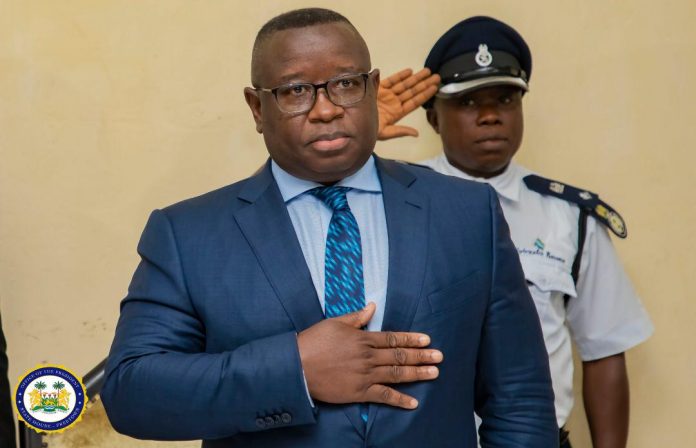By Amin Kef Sesay
Views gathered from across the broad spectrum of our society indicate that President Bio is not doing too well in the area of peace building and national cohesion’ given the series of political and social upheavals that have taken place in the country since he and the SLPP New Direction Government came to power on April 4th 2018.
It can be recalled that the New Government set sustainable peace and development as central issues to achieve a just, inclusive and peaceful society, as described in SDG 16. But two years on, everywhere we look, social cohesion at national and regional levels is patchy.
Due to these disrupting events, it has been extremely difficult for the State to engage in meaningful peace-building and State Building processes with political, local, national or international actors.
Even though various approaches and strategies have been set in place, a sustained attention to durable peace at all levels remains wanting. As such, calls are that President Bio focuses on key peace and nation unifying elements such as inclusion and participation in order to achieve national cohesion.
Alongside putting in place a police and justice system that the people can trust and depend on to deliver justice fairly and equitably to one and all, it is important to establish infrastructures and institutions that help build constructive social and political relationships and enhance sustainable resilience of societies against relapse into youth induced violence which lately as we all see has become commonplace.
We recall the President announced plans to set up a National Infrastructure for Peace, an independent National Commission on Peace and Cohesion to help address ethnic and regional divides along political lines across the country as well as to strengthen peace and national inclusion.
Quick actualization of this institutional framework composed of very independent minded senior citizens would go a long way in establishing trust and confidence between antagonistic factions in society, as well as between the Government and its citizens.
The NPC would also function as a bridge between local communities, districts and the Government highlighting issues to be addressed and facilitating timely interventions through it, having structures that reach out to the local levels and build on the existing capacities and systems that support peace.
The envisaged mandates of this envisioned Peace Commission include among others the promotion of a culture of peace; support for the prevention and management of conflicts and enhancing traditional conflict resolution mechanisms.
This inclusive and independent peace infrastructure to enhance national cohesion and development in Sierra Leone needs to be adequately resourced.
The need to make the Commission as independent from the current political climate as possible must be stressed and translated into recommendations for its composition and sustainability.




